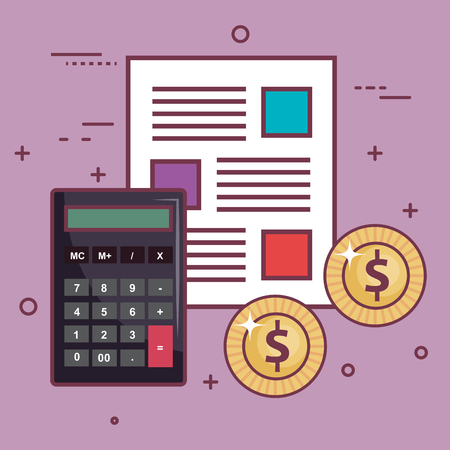1. What Is Debt Consolidation?
Debt consolidation is a financial strategy that helps people manage multiple debts by combining them into a single payment. Instead of juggling several credit card bills, loans, or medical balances each month, you merge these debts into one new loan or account with a single monthly payment. The main goal is to simplify your finances and, ideally, lower your overall interest rate or monthly payment.
How Does Debt Consolidation Work?
When you consolidate your debt, you take out a new loan—often called a debt consolidation loan—to pay off your existing debts. Afterward, you’re left with just one creditor to pay each month. This can make budgeting much easier and help reduce the chances of missing payments.
Common Methods Used in the U.S.
| Method | Description | Typical Use |
|---|---|---|
| Personal Loan | Borrow a lump sum from a bank or online lender to pay off existing debts. | Credit cards, personal loans, medical bills |
| Balance Transfer Credit Card | Transfer multiple credit card balances to a new card with an introductory 0% APR offer. | Mainly for credit card debt |
| Home Equity Loan or HELOC | Use home equity to borrow money at a lower interest rate and pay off higher-interest debts. | Larger debts; homeowners only |
| Debt Management Plan (DMP) | Work with a nonprofit credit counseling agency to create a structured repayment plan. | Unsecured debts; people who need professional guidance |
Typical Scenarios Where Consumers Consider Debt Consolidation
- You have multiple high-interest credit card balances and want to save on interest.
- You’re struggling to keep track of several due dates and want to simplify payments.
- Your credit score is strong enough to qualify for lower-interest loans or balance transfer offers.
- You prefer having just one fixed monthly payment instead of many variable ones.
- You are determined to pay down debt faster and avoid long-term financial stress.
2. Pros of Debt Consolidation
Simplified Payments
One of the biggest perks of debt consolidation is how much easier it makes your monthly payments. Instead of juggling several bills with different due dates, you’ll only need to keep track of a single payment each month. This can be a real stress reliever and helps make sure you don’t accidentally miss a payment.
Payment Comparison Table
| Before Consolidation | After Consolidation |
|---|---|
| Multiple credit card bills, personal loans, and store cards | One consolidated loan payment |
| Different due dates throughout the month | One consistent due date |
| Varying interest rates and minimum payments | A fixed rate and clear payoff plan |
Lower Interest Rates
If you have good or improving credit, consolidating your debts may qualify you for a lower interest rate than what you’re paying on your credit cards or other high-interest loans. This can save you a significant amount over time, especially with American credit card rates often running above 20% APR.
Example:
If your average credit card rate is 22% but you consolidate with a personal loan at 10%, you could cut your interest costs by more than half.
Opportunity to Improve Your Credit Score
Debt consolidation can also help boost your credit score in several ways:
- On-time payments: Making one manageable payment on time each month helps build a positive payment history.
- Lower credit utilization: When you pay off credit cards with a consolidation loan, your revolving balances drop, which often improves your credit utilization ratio—a key factor in FICO scoring.
- Diverse credit mix: Having both installment loans (like a consolidation loan) and revolving accounts (like credit cards) can positively impact your score if managed responsibly.
Credit Score Impact Table
| Action | Potential Credit Score Impact |
|---|---|
| Pays off high balances on credit cards | Lowers utilization rate (can increase score) |
| Makes consistent, on-time monthly payments | Adds positive payment history (can increase score) |
| Adds installment loan to credit mix | Diversifies account types (may increase score) |

3. Cons of Debt Consolidation
If you’re thinking about debt consolidation, it’s important to understand not just the benefits but also the potential downsides. While rolling your debts into one payment might sound like a great idea, there are some risks and costs to consider, especially in the U.S. market. Let’s break down the key cons you should know about.
Possible Fees and Hidden Costs
Many debt consolidation loans and balance transfer credit cards come with fees that can sneak up on you. Here’s a quick look at common charges:
| Type of Fee | Typical Cost | Description |
|---|---|---|
| Origination Fee | 1% – 8% of loan amount | This is charged upfront by lenders when you take out a new loan. |
| Balance Transfer Fee | 3% – 5% of transferred balance | Credit card companies often charge this when you move balances to a new card. |
| Annual Fee | $0 – $100+ | Some credit cards used for consolidation have yearly charges. |
| Prepayment Penalty | Varies by lender | You might pay extra if you pay off your loan early. |
Risk of Accumulating More Debt
One big pitfall is the temptation to rack up more debt after consolidating. For example, after paying off your credit cards with a consolidation loan, it’s easy to start using those cards again. If you’re not careful, you could end up with more debt than before.
Why Does This Happen?
- Lack of budgeting: Without changing your spending habits, consolidation won’t fix the root problem.
- No credit card closure: Keeping old accounts open increases temptation.
Impact on Your Credit Score
Debt consolidation can both help and hurt your credit score. Here’s how it might negatively affect you:
- Hard Inquiry: Applying for a new loan or credit card usually leads to a hard inquiry, which can lower your score by a few points temporarily.
- Average Account Age Drops: Opening a new account can reduce the average age of your credit history, which may also impact your score.
- Closing Accounts: If you close old accounts after consolidating, it can shrink your available credit and raise your credit utilization ratio, another factor that can lower your score.
Pitfalls Specific to the U.S. Market
The U.S. has unique features in its lending environment that can create extra challenges for people consolidating debt:
- Aggressive marketing: Many companies target consumers with poor credit, sometimes offering high-interest “consolidation” loans that aren’t much better than what you already have.
- Variable interest rates: Some personal loans or lines of credit come with variable rates that could rise unexpectedly and increase your payments over time.
- Lack of regulation in some services: Not all debt relief or consolidation companies are regulated equally. It’s important to research any company before signing up.
The Bottom Line on Cons
If you’re considering debt consolidation, make sure to weigh these potential drawbacks against the benefits. Understanding all the angles will help you make an informed decision that fits your financial situation.
4. Is Debt Consolidation Right for You?
Debt consolidation can sound like a great way to get your finances under control, but it’s not the perfect solution for everyone. If you’re thinking about taking this step, here are some key factors that Americans should consider before deciding if debt consolidation is the right move.
How Much Debt Do You Have?
The amount of debt you have plays a big role in whether debt consolidation makes sense. Generally, if you have multiple high-interest debts (like credit cards or personal loans) totaling several thousand dollars, consolidating can help simplify payments and may reduce your interest rates. However, if your total debt is low or mostly medical or federal student loans, other solutions might be better.
What’s Your Credit Health?
Your credit score affects your eligibility for good consolidation offers. A higher score usually means better rates on personal loans or balance transfer credit cards. If your credit isn’t great, you might not qualify for lower interest rates — and in some cases, consolidating could actually cost you more over time.
Credit Score and Loan Options Table
| Credit Score Range | Possible Consolidation Options |
|---|---|
| Excellent (720+) | Low-interest personal loans, 0% APR balance transfer cards |
| Good (660-719) | Moderate-rate loans, some balance transfer options |
| Fair/Poor (below 660) | High-interest loans, limited balance transfer options |
What Are Your Personal Financial Goals?
Think about what you want to achieve with debt consolidation. Are you hoping to lower your monthly payments, pay off debt faster, or just make things easier to manage? Make sure your chosen method matches up with your goals — for example, a longer loan term might mean lower monthly payments but more interest paid overall.
Are There Better Alternatives?
Debt consolidation isn’t the only way to tackle debt. Here are some alternatives to consider:
- Debt Settlement: Negotiating with creditors to pay less than what you owe; may hurt your credit but can resolve debt quickly.
- Bankruptcy: A legal process to wipe out certain debts; usually a last resort due to long-term impact on your credit report.
- Debt Management Plans: Nonprofit agencies can help you combine payments without taking out new loans.
Comparing Your Options Table
| Option | Main Benefit | Main Drawback |
|---|---|---|
| Debt Consolidation Loan | Simplifies payments; may lower rate | Requires good credit; fees possible |
| Debt Settlement | Pays off debt for less than owed | Lowers credit score; possible tax impact |
| Bankruptcy | Discharges most debts legally | Severely impacts credit for years |
| Debt Management Plan | No new loan; support from counselors | Pays full balances; may take years |
Your Next Steps
If you’re considering debt consolidation, start by checking your current debts, reviewing your credit report, and thinking honestly about your financial goals. Compare all the options available to find the one that best fits your needs and lifestyle.
5. Tips for Successful Debt Consolidation
Choose a Reputable Lender
Not all lenders are created equal. Do your homework to find a lender with a solid reputation, fair interest rates, and transparent terms. Check online reviews, Better Business Bureau ratings, and ask friends or family for recommendations. Avoid lenders that charge high fees or pressure you to sign quickly.
How to Compare Lenders
| Lender Feature | What to Look For |
|---|---|
| Interest Rate | Low, fixed rate preferred |
| Fees | Minimal or no origination/prepayment fees |
| Customer Reviews | Positive experiences from U.S. borrowers |
| Transparency | Clear terms, no hidden charges |
| Accreditation | Licensed and BBB-accredited if possible |
Understand the Terms Before Signing
Before you sign any agreement, make sure you fully understand the loan terms. Look for details like the interest rate (APR), repayment period, monthly payment amount, and any possible penalties for late payments or early payoff. If anything is unclear, don’t hesitate to ask questions until you’re confident about what you’re agreeing to.
Key Terms to Review:
- APR: The annual cost of borrowing money, including fees.
- Repayment Period: How long youll be paying off the loan.
- Monthly Payment: Can you realistically afford this?
- Fees: Origination, late payment, or prepayment penalties.
- Total Cost: What will you pay in total over the life of the loan?
Create Responsible Financial Habits
A debt consolidation loan can help simplify your payments, but it won’t fix underlying spending habits. Make a budget to track your expenses, avoid taking on new debt, and focus on living within your means. Consider setting up automatic payments so you never miss a due date.
Tips for Building Good Money Habits:
- Create a realistic monthly budget—and stick to it!
- Avoid using credit cards unless absolutely necessary.
- Add an emergency fund to cover unexpected expenses.
- Monitor your credit score regularly.
- If you struggle with discipline, consider working with a non-profit credit counselor.
Stay Motivated and Track Your Progress
Paying off debt takes time. Celebrate milestones along the way—like paying off a card or reaching halfway through your loan term. Tracking your progress will keep you motivated and focused on your financial goals.


